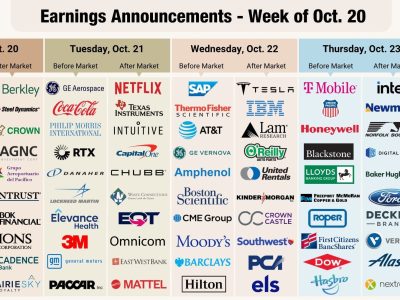
Markets drifted lower across North America as tech and small-caps slumped, while gold’s historic plunge and volatile crude trading defined...
Unlock the full potential of your financial journey with expert guidance tailored to the dynamic world of financial markets. Whether you're seeking growth, security, or smart investment opportunities, we provide the tools, insights, and solutions to help you achieve lasting success.
Gain real-time insights, expert market analysis, and powerful trading strategies. Navigate financial markets with confidence and turn opportunities into success.
Backed by years of experience and a deep passion for empowering others, our team of seasoned traders and analysts is here to guide your success.
At Bilal's Tech, we pride ourselves on being your reliable partner in navigating the complexities of the financial markets. With expert insights, cutting-edge tools, and personalized solutions, we’re here to guide you toward financial growth and success.
We craft customized financial strategies designed to meet your unique goals. By combining market expertise with innovative solutions, we help you maximize opportunities and achieve long-term success.
Our expert team will work closely with you to create a tailored investment strategy designed to achieve your financial goals while minimizing risk and managing your portfolio.
Our algorithms leverage advanced technology to analyze market data in real-time, enabling us to identify lucrative trading opportunities and execute trades with precision.
Our team of dedicated analysts monitors global markets around the clock, providing you with timely insights, recommendations, and support whenever you need it.
At Bilal’s Tech, we offer professional services designed to drive your financial growth. Our personalized approach ensures tailored strategies that align with your goals, empowering you to thrive in the ever-evolving financial markets.

Bilal's Tech provides a comprehensive range of financial services to help you navigate today's dynamic markets. From strategic planning to expert guidance, we’re here to empower your financial decisions and ensure sustainable growth.

Our investment services are designed to help you make informed decisions that align with your goals. With insights into market trends and personalized strategies, we help you maximize returns while managing risks effectively.

At Bilal's Tech, our wealth management solutions focus on preserving and growing your assets. By offering tailored strategies and expert support, we ensure your wealth works for you and secures your financial future.

Leverage the power of advanced algorithms with Bilal's Tech. Our algorithmic trading solutions are designed to analyze market trends, execute trades with speed and accuracy, and optimize your trading strategies for consistent results in the ever-changing financial markets.

Markets drifted lower across North America as tech and small-caps slumped, while gold’s historic plunge and volatile crude trading defined...

Dow hits new record as 3M and Coca-Cola lift sentiment; gold suffers biggest drop since 2020. Crypto mixed — ETH...

The Q3 2025 financial market outlook reveals how global trade tensions, shifting monetary policies, and corporate earnings are shaping investor...

As the week of October 20 2025 begins, investors zero in on the Most Anticipated Earnings from Tesla, Netflix, IBM,...

Markets swung higher as Trump’s softer tone on China revived risk appetite, snapping a volatile week across assets. Gold tumbled...

Markets Turn Defensive as Risk Assets Slip; Gold Hits Record, Small Caps Sink Over 2%. U.S. and global equities weakened...

Markets shrug off trade tensions as Fed turns dovish, Asia reels from Japan’s political shock, and gold hits new highs....

Markets swung sharply as U.S.-China trade frictions deepened and safe-haven assets soared. The Dow eked out gains amid tariff turmoil,...

Renewed Trade War tensions have reignited global market volatility, sending investors into a flight to safety and policymakers scrambling for...

"Working with Bilal's Tech has been a game-changer for me. Their tailored financial strategies helped me achieve consistent growth while managing risks effectively. I highly recommend their services to anyone looking to navigate the financial markets with confidence."

The team at Bilal's Tech goes above and beyond. Their algorithmic trading solutions are incredibly precise and have saved me countless hours while delivering impressive results. They truly understand what traders need to succeed.

Bilal's Tech transformed my approach to investing. Their expert insights and wealth management services have given me peace of mind knowing my financial future is in good hands. Their dedication to client success is unmatched.

As someone new to trading, I was overwhelmed by the complexity of financial markets. Bilal's Tech simplified the process for me with their innovative tools and expert guidance. I now feel confident making informed decisions, thanks to their incredible support.
Investor
Find answers to commonly asked questions about our services and trading strategies
At Bilals Tech, we pride ourselves on offering a diverse range of trading education programs designed to cater to traders at every skill level. Our comprehensive curriculum includes beginner-friendly courses covering the fundamentals of trading, intermediate-level programs focusing on advanced trading strategies, and specialized workshops delving into specific areas such as technical analysis, risk management, and algorithmic trading. Additionally, we provide personalized one-on-one mentoring sessions for those seeking individualized guidance and support. With our commitment to providing high-quality education and practical insights, our programs are designed to empower traders with the knowledge and skills needed to succeed in the dynamic world of trading.
At Bilals Tech, accessing our market analysis and support is simple and convenient. As a client, you’ll have access to our team where you can stay updated on the latest market trends, receive timely insights, and access our team of dedicated analysts whenever you need assistance. Additionally, we offer multiple channels of communication including email, social media channels, ensuring that help is always just a message away. Whether you have questions about market developments, need guidance on a specific trade, or require support during volatile times, our team is here to provide the expertise and assistance you need. With our commitment to providing comprehensive support and timely insights, you can trade with confidence knowing that you have a trusted partner by your side every step of the way.
At Bilalstech, our trading solutions are distinguished by our deep experience and proven expertise. Unlike traditional methods, we rely on years of industry knowledge to analyze vast amounts of real-time market data, providing traders with valuable insights. This allows us to identify high-potential trading opportunities with precision and efficiency, executing trades at the best possible prices and speeds. Our team continually adapts to changing market conditions, ensuring consistent, reliable performance. With a strong focus on experience and know-how, we give traders the tools they need to capitalize on market opportunities and reach their financial goals.
Don’t Wait Any Longer to Unleash Your Trading Potential – Get Started Today and Let Us Guide You Towards Success.